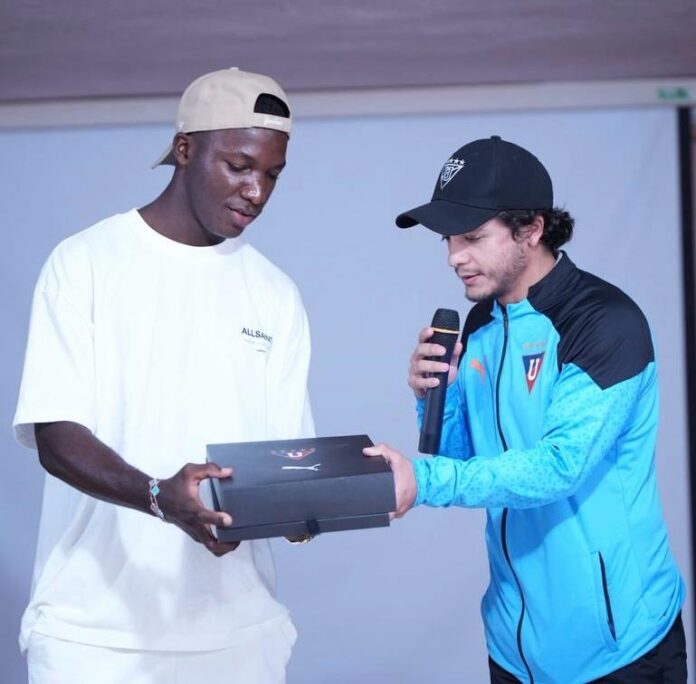Marco Durán Montenegro is a football performance specialist and coach with extensive experience across top South American clubs. He has built his career around developing high-performance environments, managing training methodologies, and implementing performance structures that impact both first teams and youth academies.
His journey began in Argentina, where he earned a Bachelor’s Degree in Physical Education and became a Certified Football Coach. He later pursued advanced education in Spain, completing a Professional Master’s Degree in High Performance in Team Sports, a Master’s in Tactical Planning, and specializations in Physical Conditioning and Load Management.
Professionally, Durán has held key roles at some of the most respected clubs in South America. At Independiente del Valle, he served as Head of Performance, overseeing methodological management, training design, competition analysis, and the use of Big Data to inform decision-making. At Universitario de Deportes, he played a transformative role in organizational restructuring, creating new departments such as Tactical Performance Analysis, Physical Performance, and Welfare, while also implementing management indicators across the club.
Durán has also contributed to Liga de Quito, Independiente Juniors, and Universitario de Deportes, combining his expertise as a performance coach, physical trainer, and academy director. His leadership extends beyond physical preparation, focusing on building holistic structures that support tactical, physical, and psychosocial development.
With a career spanning across Ecuador and Peru, Marco Durán Montenegro has positioned himself as a modern football performance leader. His ability to blend academic knowledge with practical application makes him a valuable figure in the evolution of South American football.
“His ability to blend academic knowledge with practical application makes him a valuable figure in the evolution of South American football.”
Our exclusive interview with Marco Durán Montenegro
What inspired you to pursue a career in football performance and coaching, and how did your academic path in Argentina and Spain shape your philosophy?
I have always been passionate about football. I tried to become a player and went through the youth system at Liga de Quito, but I realized that talent was not my strongest virtue, so I decided to dedicate myself to coaching. I was very clear that high performance was my passion. I chose to study in Argentina, where I completed my university degree, which gave me important tools in leadership and management. Later, I continued my studies in Spain, where I acquired methodological tools that helped me understand and structure strategic areas in the clubs where I worked. Both approaches helped me enhance my interventions in high-performance football.
During your time at Independiente del Valle, you worked heavily with methodological management and data-driven decision-making. How did those innovations impact the club’s success?
At Independiente del Valle, I spent a period of 3 years. Without a doubt, it is a space that demands a lot, where you are constantly challenged to innovate and break paradigms. For this reason, I structured a performance department together with a great friend, Antonio Bores. At the beginning, data was the priority—extracting it, understanding it, and from there making decisions. I consider the most important achievements to be: reduction of injuries, performance profiling, injury prevention, and record-time recovery of injured players. This had a direct impact first on coach education and decision-making in planning, and second on sporting achievements, since thanks to good decisions in injury recovery, we had a full squad available for the Copa Sudamericana final, which we went on to win.
“At the beginning, data was the priority—extracting it, understanding it, and from there making decisions.”
At Universitario de Deportes, you led organizational reengineering and built multiple new departments. What were the biggest challenges in implementing those structural changes?
The biggest challenge at Universitario de Deportes was professional development. I believe human capital is the key to success, and many institutions often lack this strength. Having specialists in different areas is essential to accelerate processes related to player development and transfers. At Universitario de Deportes, the methodology, performance, and individual development departments were inaugurated. The challenge was to train local coaches to understand the needs of each department and lead them successfully.
You have worked both with first teams and youth academies. How do you adapt your approach when working with developing players compared to established professionals?
The main difference between a youth player and a professional player lies in the amount of experience they have. For me, helping them understand the game from the tactical, physical, and technical perspectives is fundamental. The focus should not only be on winning matches but on their individual performance to promote them to the professional squad. It is also essential to talk about “invisible training”—the 22 hours outside the pitch. Supporting them to achieve results off the field has a direct impact on their sporting performance.
Football performance today blends physical, tactical, and psychosocial dimensions. How do you ensure balance between these areas in your programs?
It is essential to detect player performance through indicators. For example, on the tactical side, I have developed different indicators that allow us to measure performance over time, and the same applies to physical performance. This, in turn, pushes us to rely on the psychosocial area, identifying what decreases or enhances performance. Ultimately, the great challenge for institutions is to be both inter- and intra-disciplinary.
Looking ahead, what trends do you see shaping the future of football performance, and where do you see your next contributions fitting into that evolution?
Without a doubt, football is becoming increasingly tactical, but also more physical. Being able to structure areas that enhance both aspects is vital. Along with this, football is also emotional, and knowing how to manage this dimension is a key factor that boosts development. For me, the youth academy is the area of a club where the greatest investment must be made, since it allows players to be developed and maximized—while also generating significant income for the club.

